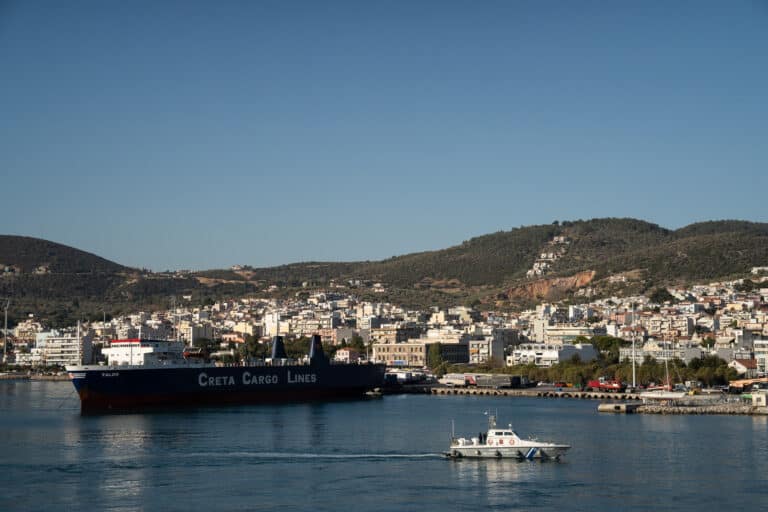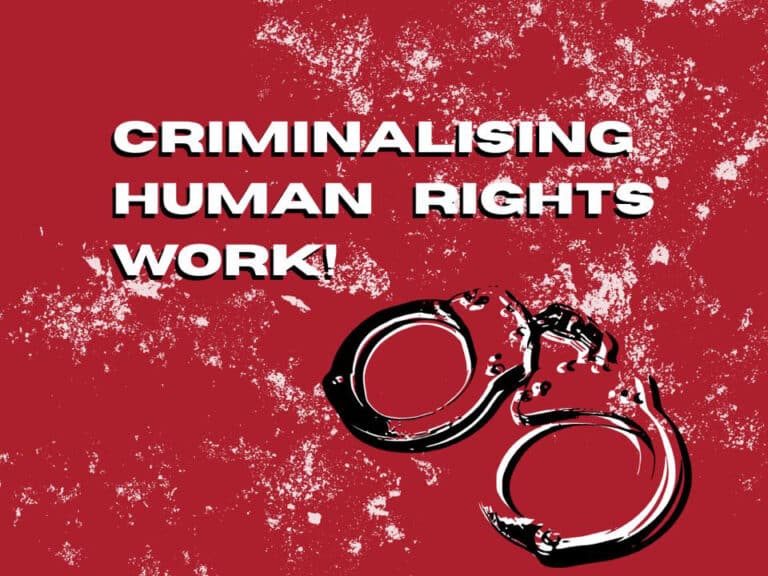CPTnet
13 August 2015
GREECE REFLECTION: Things can
only get better
Conditions are devastating and
change comes slowly for the refugees in the Kara Tepe camp, on the Greek island
of Lesvos. CPT team visits the camp regularly. Read about the experiences of
our summer delegate Johanna Kaprio. The text was first published on July 19 on
Kaprio’s blog The Deep Blue Border.
An Afghan man approaches
me, asking politely if I am a doctor, and wants me to come and look at his
daughter who has a stomach flu with fever for the fourth day. I explain to him
that I am not a doctor, yet I try to remember whatever I know about stomach flu
self help instructions: plenty of water, bananas, orange juice with bits…
Moving on some meters,
another parent stops me, posing the same question, and I repeat the same
answer. And then another one. And more. Moving another fives meters, a man
approaches me and wants me to look at his daughter’s hands. It is an impetigo
that has spread across both hands. It needs urgent antibiotic treatment. She is
unable to move her fingers properly but she still gives me the most beautiful
smile. Children…
We are in Kara Tepe, a
camping area on the island of Lesvos where thousands of refugees wait for their
documents to be processed so that they can continue their journey to Athens,
and from there to continue their asylum process in other European countries.
There is no doctor in the
camp, although thankfully we know that the Doctors Without Borders (MSF) will
start operating here in the coming days. The municipality of Lesvos opened Kara
Tepe in spring 2015 as a temporary holding place for about 1,000 persons – on
the worst days there are over 3,500 persons.
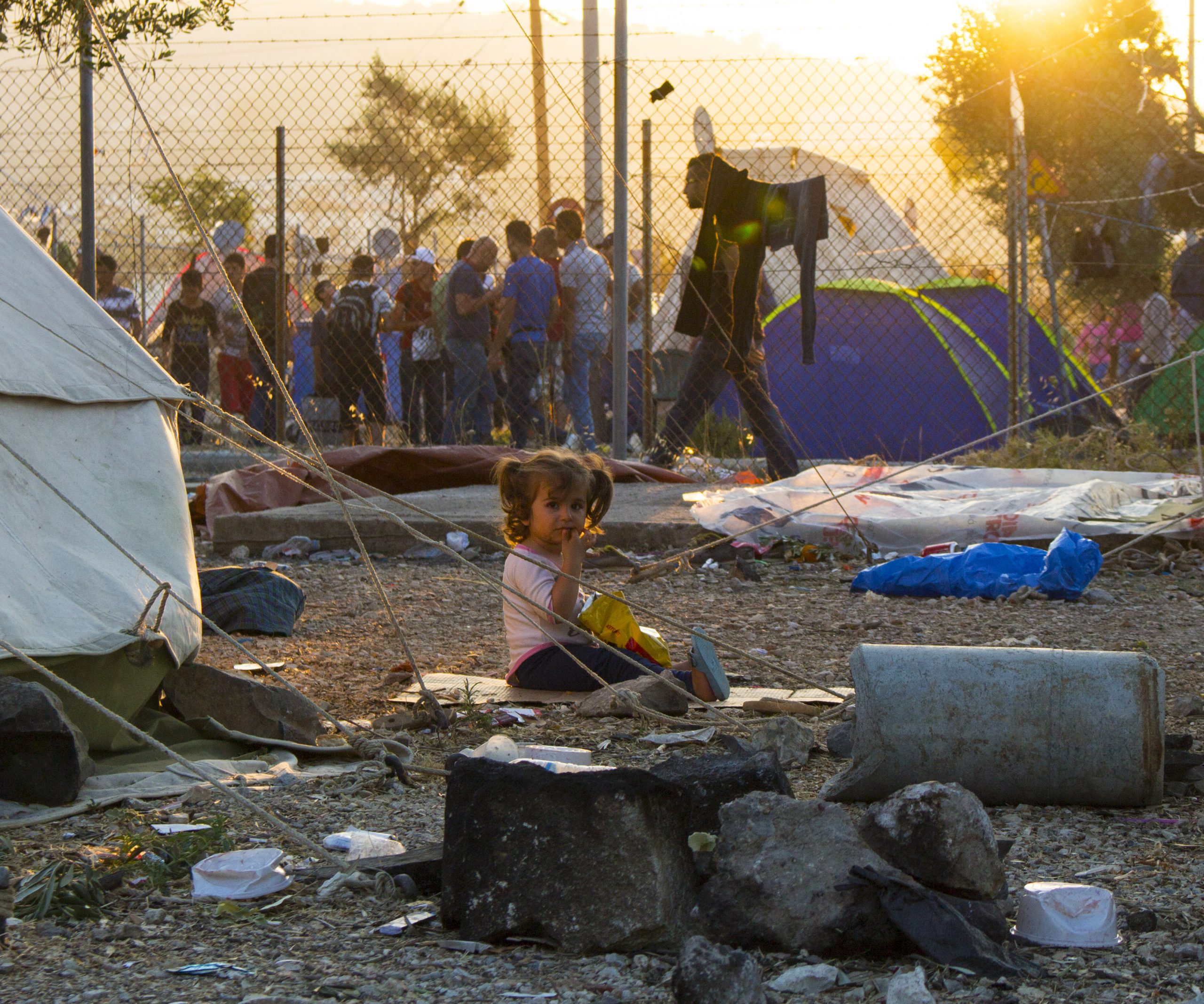 |
| With all the mess around her in the Kara Tepe refugee camping area she sits on a cardboard enjoying her potato chips. |
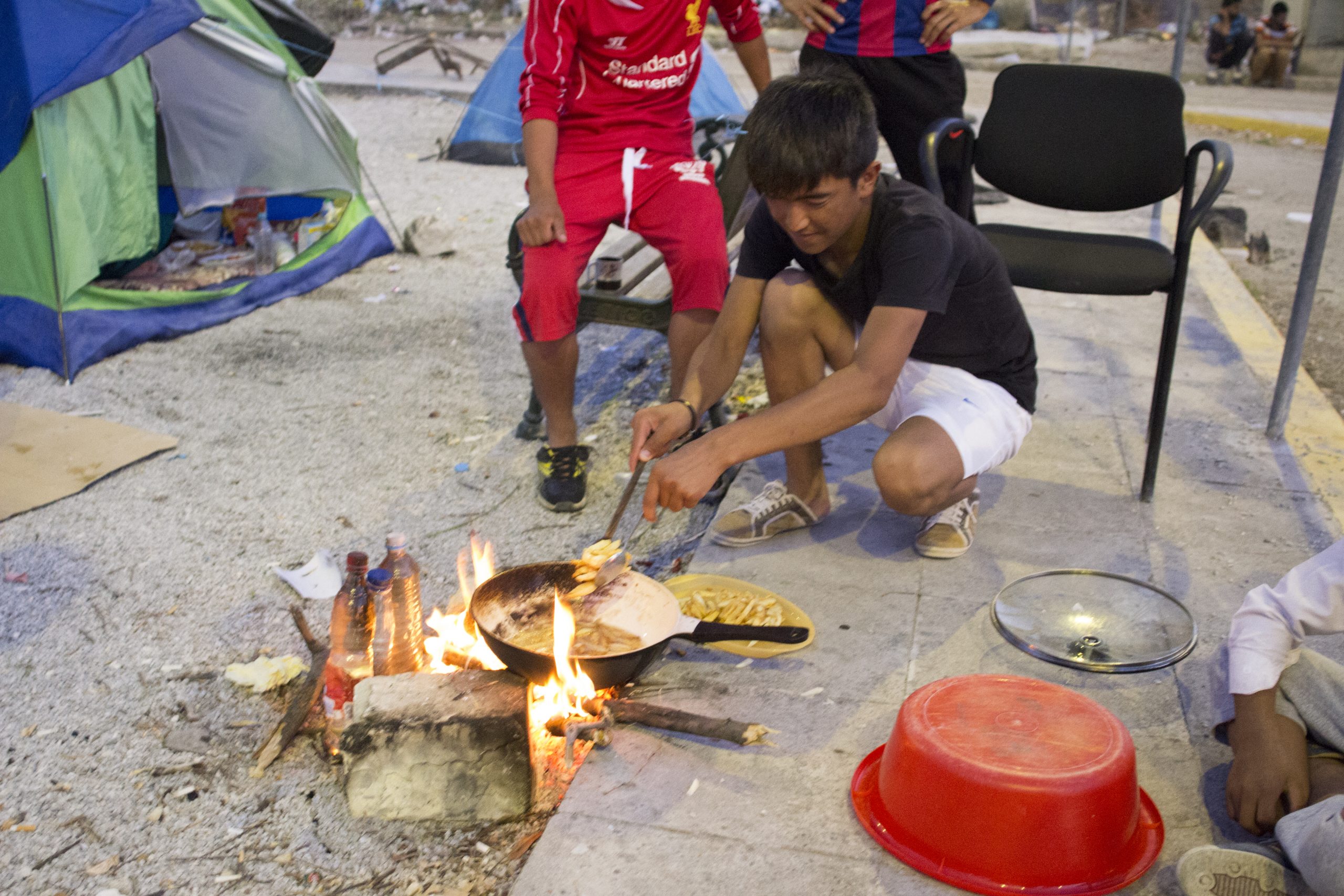 |
| Afghan father preparing dinner and heating water at Kara Tepe camp. |
The camp is usually full
of garbage. Litter next to the water pumps, next to the firepits where people
cook. Next to the overcrowded tents where families of up to twenty persons
sleep and areas where children play. Thankfully, some days ago a group of
volunteers came and cleaned parts of the camp, and the rest will be cleaned
soon. It helps for a while.
They even cleaned the
toilets, as up until now it was impossible to enter them. Before that, no one
had cleaned them for weeks. A nauseating smell filled one’s nostrils many
meters before entering the women’s toilets, six altogether, which are supposed
to serve thousands.
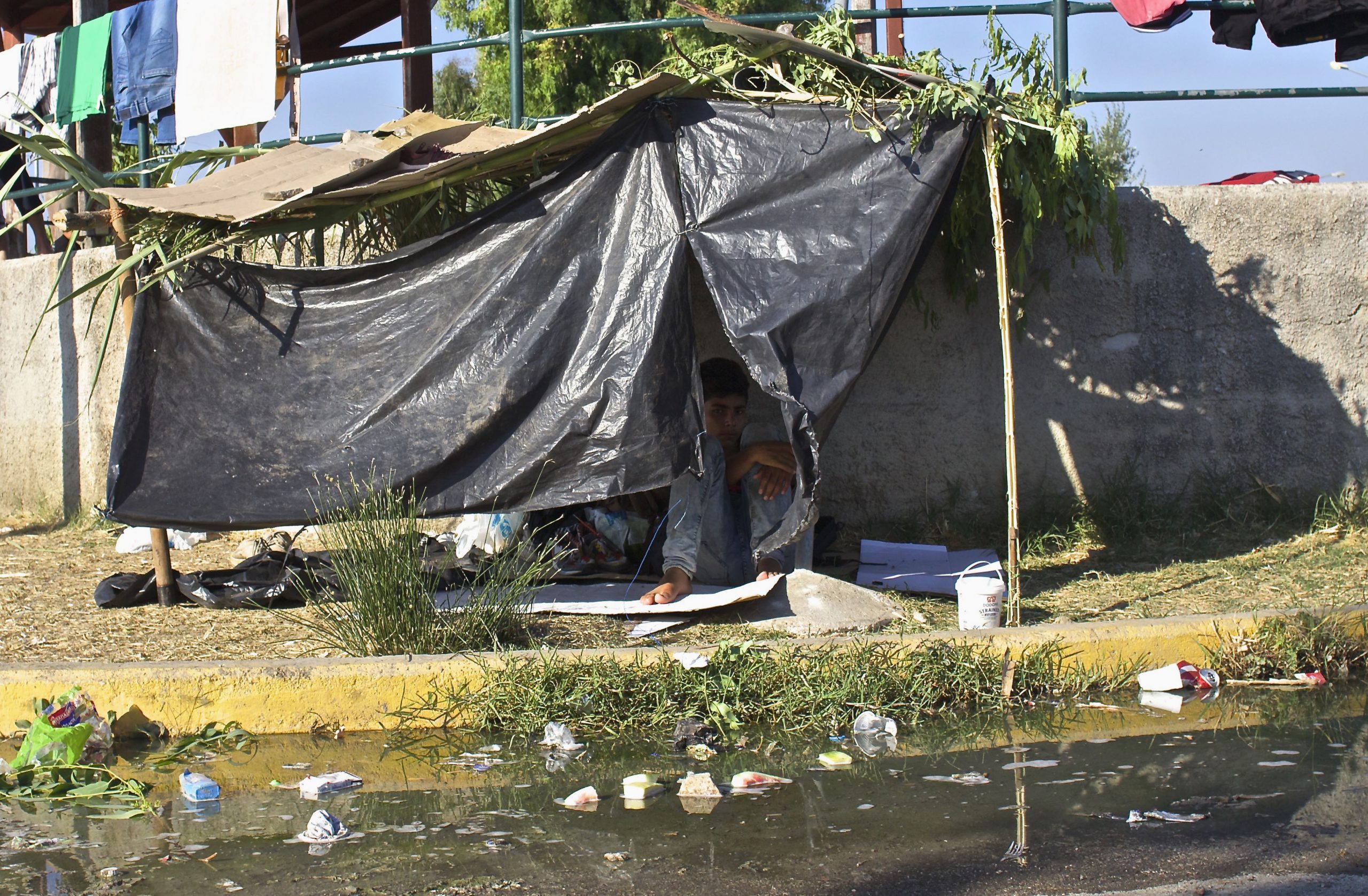 |
| Boy sits in the shades of a shelter made out of waste bags, surrounded by dirt water and litter. |
There is just one
problem. With all due respect to the Greek and international volunteers who
come here to clean, to give food, hygiene products and clothes – donations of
locals, tourists, and from abroad – you cannot expect volunteers to have the
resources run a refugee camp of thousands. What are needed here are an organized
camp management and a coordinated humanitarian aid response.
Moreover, it needs to be an internationally
supported one. Not only because the country is in an economic crisis. The
refugee crisis is not a Greek challenge, or an Italian challenge. It is a
global challenge, and where we are – a European challenge. The Europeans may
not be used to the idea of having refugee camps inside the EU territory, yet
the sooner we wake up to the current reality, the better. The UNHCR has called for an urgent emergency response from Europe before
the humanitarian situation deteriorates further.
So far international
response has mostly been lacking. My team had a long discussion with Spyros
Galinos, the Mayor of Lesvos, about the refugee situation. He expressed his
frustration. In the last two months island has received hundreds of
journalists. Indeed, all big media agencies are represented here. Yet no
significant help has come.
“Our European partners have left us alone to help the refugees,” says Galinas.
The people we meet in the
camp just cannot believe that they are here. Mostly they didn’t want to leave
their countries, but had no choice because of wars and conflicts there. They
come from all walks of life. Mostly, they are just ordinary families with
ordinary lives and ordinary hopes of good life. Their journey to Greece was
difficult and even dangerous. In their path towards safer life, Kara Tepe is a
shock.
I meet a Syrian family of
twenty persons, sharing one tent. The adults sit on cardboard on the ground and
the children play inside the tent.
“I could never have
imagined finding myself and my family in these conditions,” says the father of
the family.
He and his wife are
lawyers, and one of their daughters is a schoolteacher. Most of their children
are very young. The family fled from Aleppo not long ago and is now heading
towards Germany, where they hope to continue their careers and live in safety;
until the day comes that they can safely return to their home again. But for now, all they can do is wait for their
documents, be patient with the conditions—and hope that Europe treats them
kindly.
“Things can only get
better,” someone says, as we wish them well after our long conversation about
the conditions in the camp. I certainly want to believe that.
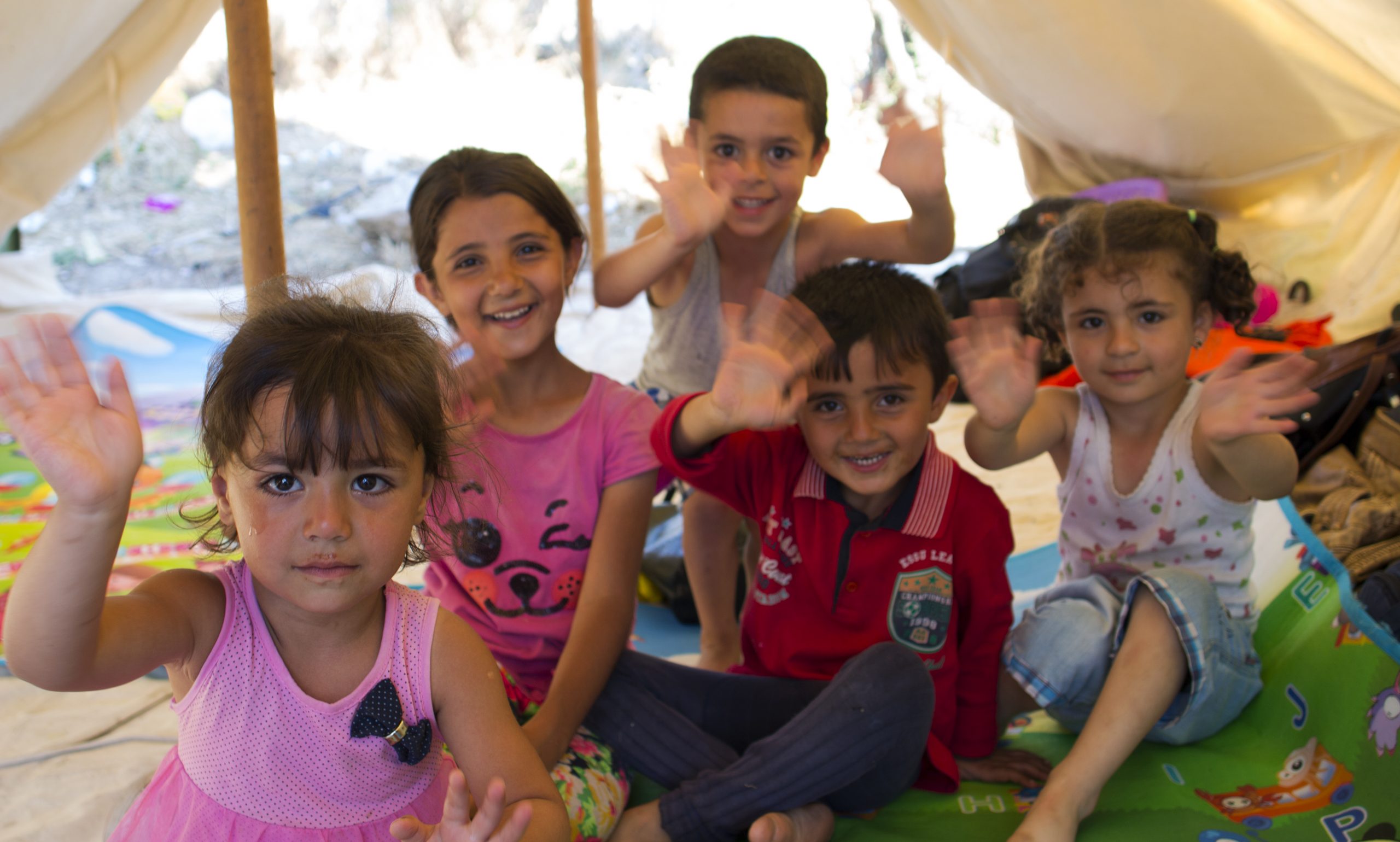 |
| Hello Europe! Children of a Syrian refugee family cannot wait to take the ferryboat to Athens and continue their journey in Europe. |
Text and photos: Johanna Kaprio


